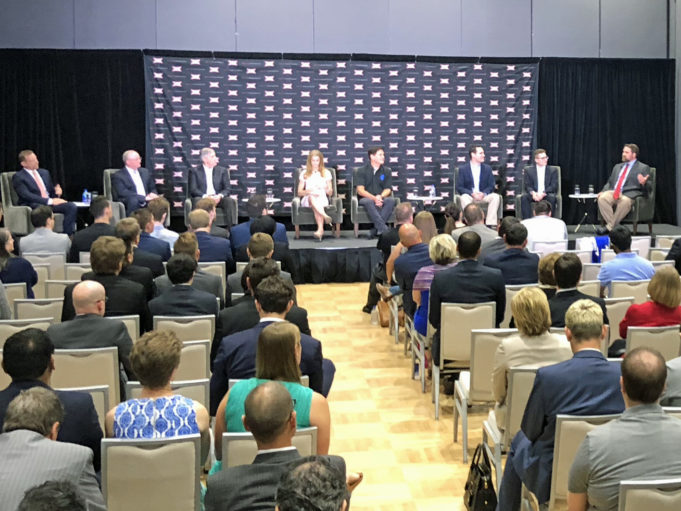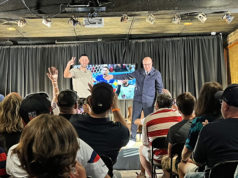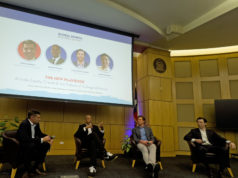Not breaking news: kids like to play video games. So has it been since Pong introduced us to the idea that pounding pixels was as fun as hitting actual physical objects, like one’s brother.
Also not breaking news: playing video games competitively is a thing. Lots of heavy hitters have invested in esports. People who aren’t even kids watch these high-level contests on their computing devices, probably including your brother.
One can wonder if the popularity of such pursuits bodes well for humankind’s future or not. It makes kids sedentary and anti-social fret some. It promotes hand-eye coordination and inspires young people to work in innovative tech fields, tout others.
Any or all of the above are likely true in individual circumstances. Do they indicate broader trends? Hard to say. One thing we know for sure: people seeking entertainment by manipulating on-screen warriors (and Warriors, in NBA 2K) isn’t going away.
In light of that fully obvious development, folks have tried to figure out how to react. Traditional sports entities, with the NBA leading the way by establishing its own league, have looked to tie in to esports. They want to generate revenue and to assist in attracting a younger generation of sports fans to their brands.
Universities have begun to explore the possibilities of official involvement in esports. A couple of weeks ago, the Big 12 Conference held a forum moderated by Bonnie Bernstein entitled “eSports: Entertainment or Sport?”
Panelists included Mavericks owner Mark Cuban, and others from the esports and collegiate athletics industries, including Twitch’s director of collegiate partnerships. Yes, Twitch has a director of collegiate partnerships (his name is Mark “Garvey” Candella). They apparently read the non-breaking news that college kids like to play video games.
If you’re one of the people who’s displeased with the proliferation of video gaming, you might not love the idea that educational institutions and big sporting entities associated with them give credibility to what you might consider a bane to society. And I have to admit, I am almost one of you. The only video game system I ever owned was an old Pong game purchased at a garage sale. I’d play friends’ systems off and on, but was never terribly into the Donkey Kongs or Centipedes of my era. And as one who believes in the fitness benefits of sports, the part where you sit around for hours moving nothing but your thumbs and your eyeballs does give me pause.
But here’s the thing – those drawbacks are exactly why you want organizations like sports leagues involved.
Kurt Melcher, Executive Director of Esports at Intersport, explained that when he broke ground by bringing esports under his department’s auspices as AD at Robert Morris, it was imperative that they treated it “the same as other sports.” A.J. Dimick, Director of Esports at the University of Utah, explained that his school provided esports competitors with access to resources like those available to other student athletes, citing specifically nutritionists and sports psychologists.
Cuban has a track record of trying to provide his players with whatever they need to train properly and dunk, drop dimes, and defend as well as they possibly can. I would bet he’s way too competitive to do anything less with his NBA 2K team.
And this is what you want. We know one performs better at anything, whether it be athletics, video gaming, or blog writing, with the proper amount of nutrition, sleep, and general body health. We also know:
- Video games aren’t going away (see non-breaking news above)
- Kids will admire and want to emulate those who play them really well, whether they encounter them through YouTube, an esports league, or watching the guy in the jean jacket at the arcade crush the high score on Galaga.
So wouldn’t you want the gamers those youngsters look up to be the ones whose teams have them on a fitness and nutrition program and who have to keep their grades up to be eligible?
When I was a kid, a poster on my bedroom wall featured Carl Yastrzemski and the caption “I Don’t Smoke Cigarettes.” I loved baseball, and sure enough, today I don’t smoke cigarettes. Will today’s equivalent be an Overwatch star tweeting about avoiding e-cigarettes? If you’re someone who distrusts vaping, or any other modern-day entertainment pursuits, that would be good news.












